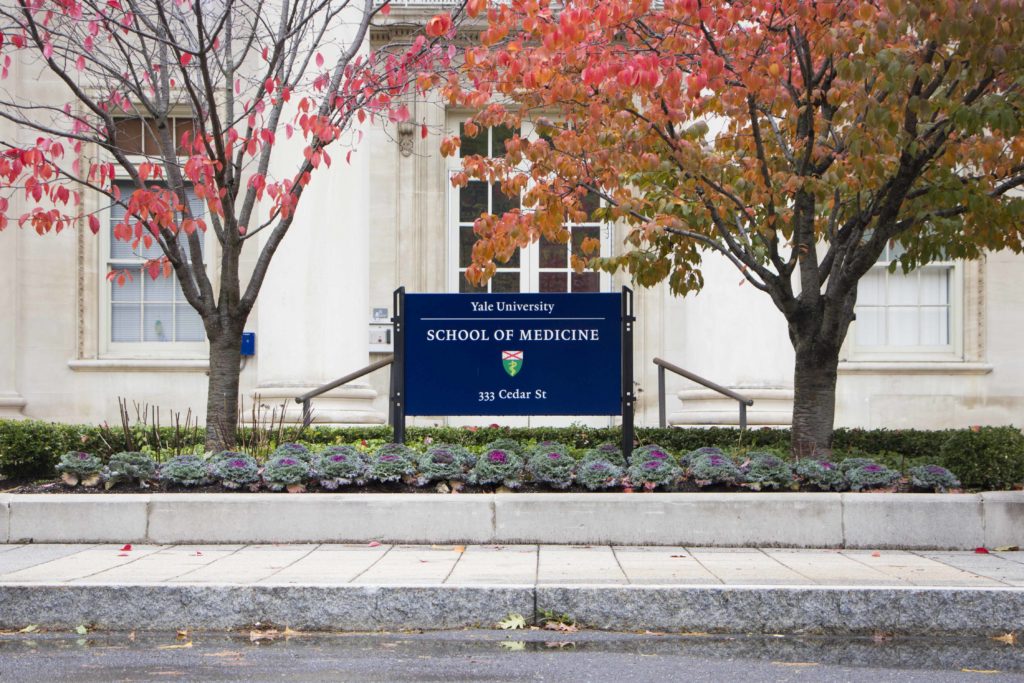YNHH neuro-ICU successfully administers alternative transfusion replacement therapy
Yale-New Haven Hospital’s neuro-ICU department and the School of Medicine made groundbreaking progress with the successful administration of blood transfusion replacement therapy.

Yale Daily News
The Yale-New Haven Hospital neuro-Intensive Care Unit, in conjunction with the Yale School of Medicine, has successfully administered transfusion replacement therapy, an alternative to regular blood transfusion.
Many patients who suffer from conditions such as aneurysmal subarachnoid hemorrhage, bleeding in the brain or severe anemia from blood loss are unable to receive regular blood transfusions due to various factors. Because of this, researchers at the Yale School of Medicine and Yale-New Haven Hospital neuro-ICU have been developing transfusion replacement therapy, which resulted in a recently successful administration of treatment.
There are many reasons why regular blood transfusions may not be ideal for some patients, according to Robert McLean, regional medical director of the Northeast Medical Group of YNHH.
“If you are looking at an ICU patient population, you are looking at critically ill patients who may have multiple reasons they need such blood transfusion replacement therapies — there might be critical illnesses from auto-immune causes, infection-related causes, or complications from increasing numbers of patients on immune-suppressing therapies –– any of them might cause the bone marrow to make less of the critical blood cells, thus creating situations where different replacement therapies are warranted,” McLean wrote in an email to the News.
In addition, many patients hold religious beliefs that prevent regular blood transfusions, even though conditions that arise from subarachnoid hemorrhage and severe blood loss and anemia can be fatal if not treated with a form of transfusion. For example, a patient who is a Jehovah’s witness may refuse blood transfusions due to their religious convictions, according to Emily Gilmore, the associate professor of neurology who led the neuro-ICU team on this alternative transfusion case.
Bleeding in the area between the brain and skull manifests into subarachnoid hemorrhage, and can be caused by ruptured blood vessels on the surface of the brain. This cranial bleeding can lead to severe brain cell damage and other long-term conditions due to the lack of oxygen transport.
“Decreased blood flow is bad for the kidneys and the brain is very sensitive to that,” Angelique Bordey, professor of neurosurgery and of cellular and molecular physiology at the School of Medicine, wrote in an email to the News.
Therefore, with patients experiencing these lesions, it is necessary to maintain adequate blood and oxygen supply in order to sustain homeostasis.
Treatment for these conditions have been in the works for centuries: substitute red blood cell transfusions can be traced back to the 17th century, and replacement therapies were in high demand during times of war violence and the HIV epidemic in the 20th century. Alternative therapy products are also favored because of their sterility and highly-effective oxygen-carrying capacity.
One of the more popular alternative transfusion therapies currently is a form of synthetic bovine hemoglobin. This synthetic form of bovine hemoglobin works to increase the oxygen-carrying capacity of blood and can potentially be conducive to restoring a degree of neurological function. This work was conducted in the lab of Nenad Sestan, Harvey and Kate Cushing Professor of neuroscience.
Sestan’s research was published as a lead study in the April 19 issue of Nature; the researchers found that it was possible for specific neurological functions in pig brains post-mortem to be restored after treatment with the synthetic bovine hemoglobin. These findings can be applied to treat decreased blood flow in a variety of mammalian species.
According to Gilmore, any blood loss in which a patient can’t receive human blood products could constitute the application of transfusion replacement therapies.
This could apply to conditions such as cancer, HIV/AIDS, rheumatoid arthritis, kidney disease, Crohn’s disease and other acute or chronic inflammatory diseases that can interfere with the production of red blood cells.
Furthermore, these alternative therapies and previous treatments can provide additional benefits to a patient, such as increased hemoglobin levels and improved cognition and heart stress. The successful administration of the transfusion replacement therapy indicates the potential for the treatment to be repeated in the future if necessary. Popularization of the treatment will provide a much-needed lifeline for critically ill patients in need of transfusions and continue to open new doors for ground-breaking, life-saving research.
Gilmore completed her neurology residency and three-year combined fellowship at Columbia University.







